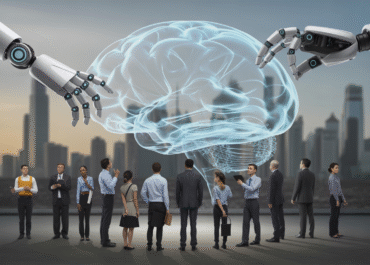Microsoft's MAI-DxO: AI Surpasses Doctors in Complex Disease Diagnosis
The landscape of healthcare is on the cusp of a revolutionary transformation, thanks to the relentless march of artificial intelligence. Microsoft has recently announced a significant breakthrough that underscores this shift: their new AI tool, dubbed MAI-DxO, has reportedly outperformed human medical professionals in diagnosing complex medical cases. This achievement is not merely an incremental improvement; it signals a profound leap forward in the application of AI within the sensitive and critical domain of health.
The Challenge of Complex Diagnoses
Diagnosing diseases, especially those with ambiguous symptoms, rare occurrences, or co-morbidities, presents one of the most formidable challenges in medicine. It requires years of experience, vast knowledge, and keen observational skills from physicians. Even the most seasoned experts can face intricate puzzles where the path to a correct diagnosis is fraught with subtleties and complexities. Misdiagnosis or delayed diagnosis in such cases can have severe, even life-threatening, consequences for patients.
MAI-DxO: A New Era in Diagnostic Accuracy
While specific technical details about MAI-DxO’s inner workings are yet to be fully public, the core announcement highlights its ability to analyze vast amounts of medical data—including patient histories, lab results, imaging scans, and genomic information—at speeds and scales impossible for humans. By leveraging advanced machine learning algorithms, MAI-DxO can identify intricate patterns and correlations that might escape the human eye, leading to more accurate and timely diagnoses for challenging cases. This capability addresses a critical need in healthcare, promising to enhance the diagnostic process significantly.
Implications for the Future of Healthcare
The success of MAI-DxO opens up a plethora of possibilities for healthcare. Imagine a future where:
- Enhanced Accuracy: Doctors can rely on AI as a powerful second opinion, reducing diagnostic errors, particularly in rare or difficult-to-identify conditions.
- Faster Diagnoses: The speed of AI processing can drastically cut down the time from symptom onset to definitive diagnosis, enabling earlier intervention and better patient outcomes.
- Increased Accessibility: AI tools could potentially extend high-quality diagnostic capabilities to underserved areas, bridging gaps in medical expertise.
- Personalized Medicine: By integrating individual patient data with global medical knowledge, AI can contribute to highly personalized treatment plans.
However, the integration of such powerful AI tools also necessitates careful consideration of ethical frameworks, data privacy, and the evolving role of human physicians. The goal is not to replace doctors but to augment their capabilities, freeing them to focus on patient care, empathy, and the human element of medicine that AI cannot replicate.
Microsoft’s MAI-DxO represents a monumental step towards a future where artificial intelligence is a cornerstone of advanced medical diagnostics. As this technology matures, it promises to revolutionize how we understand, identify, and ultimately treat diseases, paving the way for healthier lives globally.


